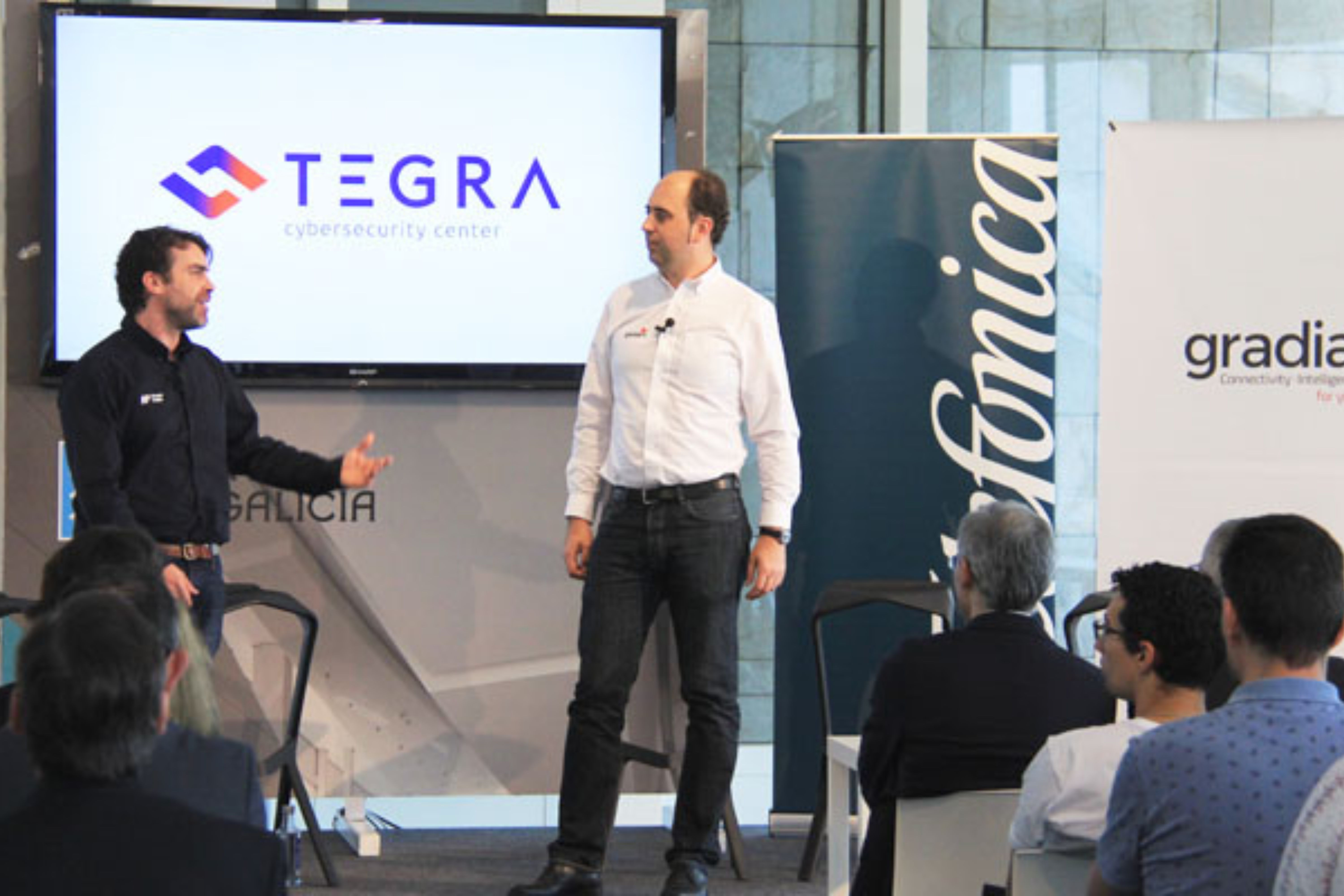
Latest information

The partnership between Gradiant and Telefónica takes shape in the new Joint Research Unit: Irmas 2.0
This project's major impact is clear to see from the report on the Cybersecurity Situation in Galicia prepared by the Xunta de Galicia's Agency for Technological Modernisation, in which it is recognised as the main player in knowledge transfer in the productive value chain of cybersecurity
After the success of the first Joint Research Unit (UMI) between Telefónica Tech and Gradiant, with the support of the Xunta de Galicia, the company and the technological centre decided to continue their partnership and consolidate the initiative with the new "Irmas 2.0: Information Rights Management Advanced Systems 2.0", which is focused on innovation in cybersecurity.
The development and implementation of security technologies to protect the business of both companies and their customers in order to benefit from the advantages of digitalisation with full guarantees is one of the alliance's main objectives.
The result of this first partnership between both entities with the support of the Xunta de Galicia was the birth of TEGRA Cybersecurity Center in 2018, the first cybersecurity centre in Galicia. TEGRA was created not only with the aim of developing products and services to improve the information security of companies, but also with the aim of generating skilled employment in R&D&I, a sector with high demand and growth potential.
Lines of research
Just like the first phase of the unit focused on data analysis for information protection, advanced control systems for information access and encryption and secure file sharing, this new IMU seeks to evolve the technology for improving security solutions developed in the previous phase, to evaluate and validate test scenarios, to propose R&D&I projects at a European level and to raise awareness of the importance of cybersecurity in Galicia. In order to achieve these objectives, the following lines of research are the main focus of the project:
- Information protection: the development of models, techniques and algorithms to automatically discover and classify information, analyse risks by detecting anomalies in access to information and detect document leaks.
- Protection against digital fraud: the development and integration of new technologies to verify the identity of persons with access to information.
- Cyberintelligence: processing information associated with cyber threats, using data on information system attacks as intelligently as possible to gain insight into the techniques, tactics and procedures used by cyber criminals and use them for more effective protection.
Impact in Galicia
In addition to the investment of nearly one million euros from each of the organisations, the Xunta de Galicia, through the Galician Innovation Agency (Gain), has contributed more than half a million euros of ERDF funds through the programme for the consolidation of Joint Research Units, aligned with the challenges and priorities identified in the RIS3 Strategy for Galicia.
What are Joint Investigation Units?
This is a cooperative mechanism that encourages cooperation between Galician bodies of knowledge and the business sector to jointly promote research, innovation and development activities aligned with the strategic challenges of the RIS3 of Galicia in a joint and coordinated manner.
The grants may be applied for by groupings between a Galician research organisation and a company, possibly two, that constitute a Joint Research Unit. The member companies may be small, medium or large.
Since the launch of this programme in 2014, the Xunta de Galicia, through the Galician Innovation Agency (Gain), has supported a total of 55 joint units and centres with 48 million euros, raising almost 155 million. In addition, these initiatives contribute to creating qualified employment, promoting R&D&I transfer to the Galician business structure, attracting companies from outside Galicia, developing the potential of Galician research organisations in leading sectors and improving the competitiveness of companies.